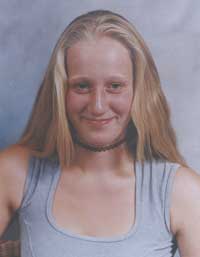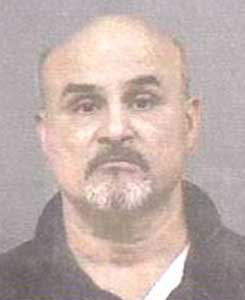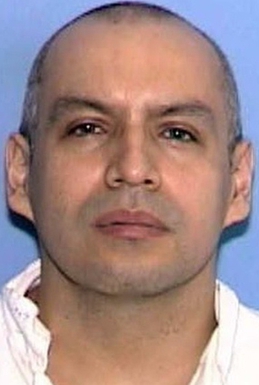Related Research Articles

Daniel Camargo Barbosa was a Colombian serial killer and rapist. He is one of the most prolific serial killers in history and is believed to have raped and murdered at least 72 young girls in Colombia and Ecuador during the 1970s and 1980s.
John Francis Duffy and David Mulcahy are two British serial rapists and serial killers who together attacked numerous women and children at railway stations in southern England during the 1980s.

On 21 April 2001, Hannah Williams, a 14-year-old English schoolgirl was murdered after going missing during a shopping trip in Dartford, Kent. Williams's body was discovered on 15 March 2002 at a cement works in an industrial area of Northfleet.
Mark Philip Dixie is a British serial rapist and a murderer who was convicted on 22 February 2008 of murdering 18-year-old singer and model Sally Anne Bowman on 25 September 2005 in South Croydon, London. He has 17 other criminal convictions. He was known by various pseudonyms.
Benny Sela is an Israeli serial rapist.

Altemio C. Sanchez, also known as the Bike Path Rapist, was a serial killer, of Puerto Rican descent, who is known to have raped and murdered at least three women, and raped at least 9 to 15 girls and women in and around Buffalo, New York, during a 31-year span from 1975, though perhaps earlier, to 2006. He was apprehended in 2007 through DNA evidence and sentenced to 75 years-to-life, serving 16 years before dying from apparent suicide in 2023.
James George Beauregard-Smith was an Australian convicted rapist and murderer who served a life prison sentence. Originally from Sydney, he moved to South Australia in 1975.

John Floyd Thomas Jr. is an American serial killer, serving a life sentence without the possibility of parole for the murders of seven women in the Los Angeles area during the 1970s and 1980s. Police suspect Thomas committed 10 to 15 more murders.
M. Jaishankar, nicknamed Psycho Shankar, was an Indian criminal, sexual predator, and serial killer, notorious for a series of rapes and murders during 2008–2011. It is believed that he was involved in about 30 rapes, murders, and robbery cases across Tamil Nadu, Karnataka and Andhra Pradesh. At the time of his death, he had been accused of murdering at least 19 women.
Umesh Reddy is a serial rapist and serial killer from India. He confessed to killing 18 women, and was convicted in 9 cases. The police believe that he raped at least 20 women in the states of Karnataka, Maharashtra and Gujarat. They also suspect that several of his crimes have not been reported, because the victims feared social stigma.
Mark Errin Rust is a convicted Australian serial sex murderer and rapist: he was convicted of two murders committed in 1999 and 2001 respectively. Rust is currently on an indefinite detention order.
Élver James Melchor Bañol is a Colombian rapist and serial killer. He was convicted of 7 rapes and 4 murders, one of them being that of Rosmery Castellón, a minor.
Arohn Kee, known as The East-Harlem Rapist, is an American serial killer and serial rapist who was responsible for four rapes and at least three murders of teenaged girls in different street blocks of East Harlem, located in Manhattan, New York City from 1991 to 1998.
James Edward Wood was an American murderer, serial rapist and self-confessed serial killer. A violent sex offender with an extensive criminal record, Wood was convicted and sentenced to death for the 1993 murder of 11-year-old Jeralee Underwood in Pocatello, Idaho; following his arrest, he was investigated for several murders committed while living in Louisiana, none of which were definitively linked to him. He died at the Idaho Maximum Security Institution in 2004.

Ramon Torres Hernandez was an American serial killer, kidnapper and rapist responsible for at least three murders in Bexar County, Texas from 1994 to 2001, and is a prime suspect in two others. Following his arrest, he admitted to the killings, was sentenced to death and ultimately executed in 2012.
Andrei Vladimirovich Roldugin, known as The Voronezh Maniac, is a Russian serial killer and rapist who committed a series of nine rapes and three murders in his hometown of Voronezh from 1996 to 2002. Caught shortly after the last killing, he admitted to his other crimes fully and was later sentenced to life imprisonment.

Kevin Bernard Haley is an American murderer, rapist, burglar and suspected serial killer who, together with his older brother Reginald, committed a series of violent crimes in the Los Angeles area from 1982 to 1984, resulting in at least two murders. Suspected in a total of eight murders, Kevin Haley was convicted of two counts of murder in separate trials, receiving death sentences on each count.
References
- 1 2 Nevo Ziv (July 4, 2019). "Shadow of Truth 2: Serial murder and recording of the dangerous prisoner". Ynet (in Hebrew).
- 1 2 Yaron Druckman; Meir Turgeman (April 19, 2024). "אחרי 47 שנה: "האנ הבכיין" שלמה חליווה שוחרר מהכלא" [After 47 Years: The "Weeping Rapist" Shlomo Haliva Was Released from Prison]. Ynet (in Hebrew). Retrieved 20 October 2024.
- ↑ "A tourist who was attacked was spared and her attacker released with a light sentence" (in Hebrew). June 27, 1969.
- ↑ "The policemen guarding Haliva will be disciplined" (in Hebrew). Maariv. December 2, 1976.
- ↑ Raz, Avi (November 14, 1976). "Haliva during interrogations: 'I wanted to flee the country as a stowaway or move to Jordan". jpress.nli.org.il (in Hebrew). Maariv.
- ↑ Raz, Avi (November 14, 1976). "Fearing a lynching at the time of his arrest, Haliva said to his captors: 'Bring police quickly!'". jpress.nli.org.il (in Hebrew). Maariv.
- ↑ "Convicted of five brutal rape cases" (in Hebrew). Davar. January 3, 1978.
- ↑ Shapiro, Reuven; Rosenbluth, Amir (December 30, 1983). "Police were obliged to seek out prisoners to solve the crimes" (in Hebrew).
- ↑ Singer, Roni (February 14, 2008). "Police rule out the possibility of a serial killer on the Coastal Road in the 1970s". Haaretz (in Hebrew).
- 1 2 Singer, Roni (February 14, 2008). "Leonor Ben Lulu's murder has crumbled apart, but her family's pain not yet". Haaretz (in Hebrew).
- ↑ "Shlomo Haliva strangled Orly Dubi with a bra after she objected to the rape" (in Hebrew). Maariv. July 26, 1984.
- ↑ "Claim: Haliva's pants and Orly's clothes bear the signs of his sperm" (in Hebrew). Maariv. August 20, 1984.
- ↑ Druckman, Yaron (June 28, 2019). "'A killer walks among us and has a weakness for women.' Back to the murders on the Coastal Road". Ynet.co.il (in Hebrew).